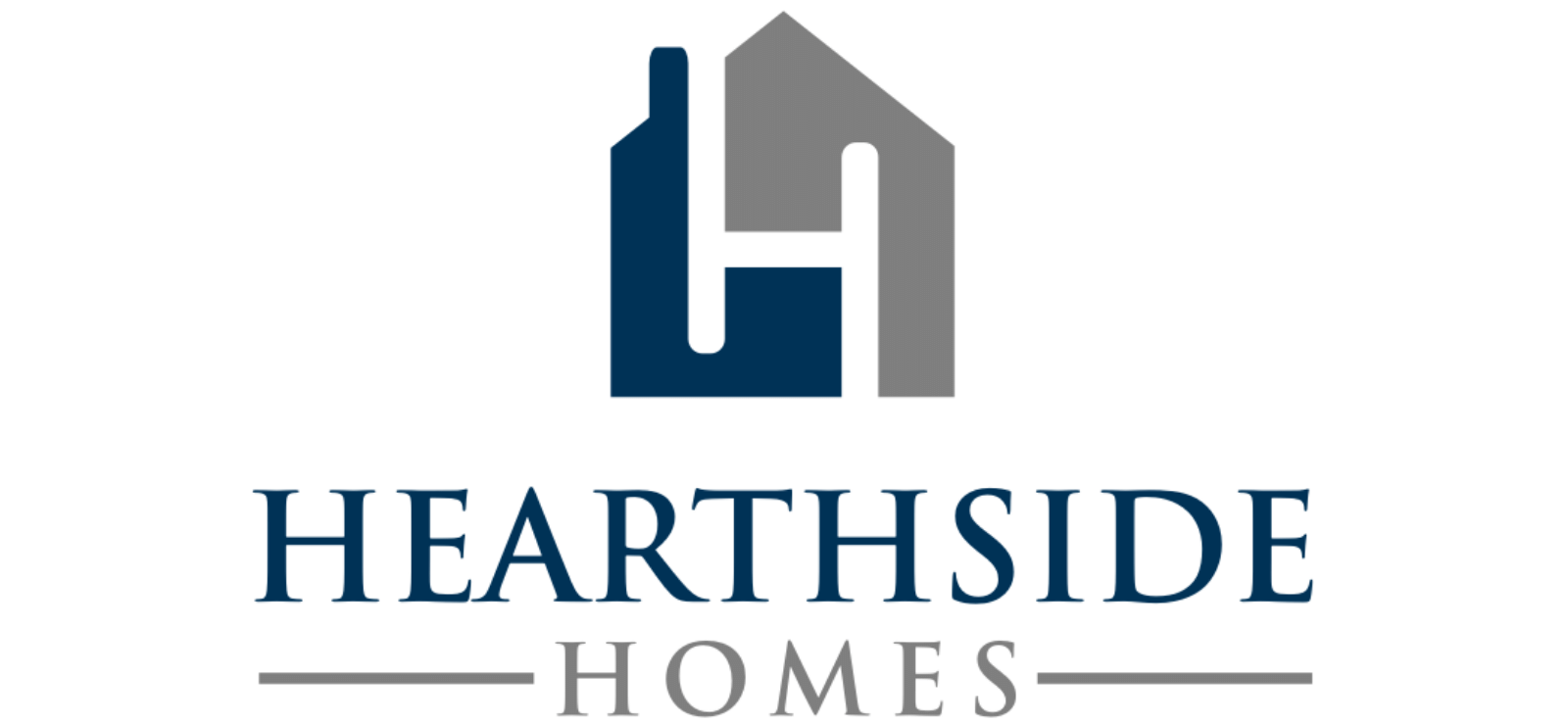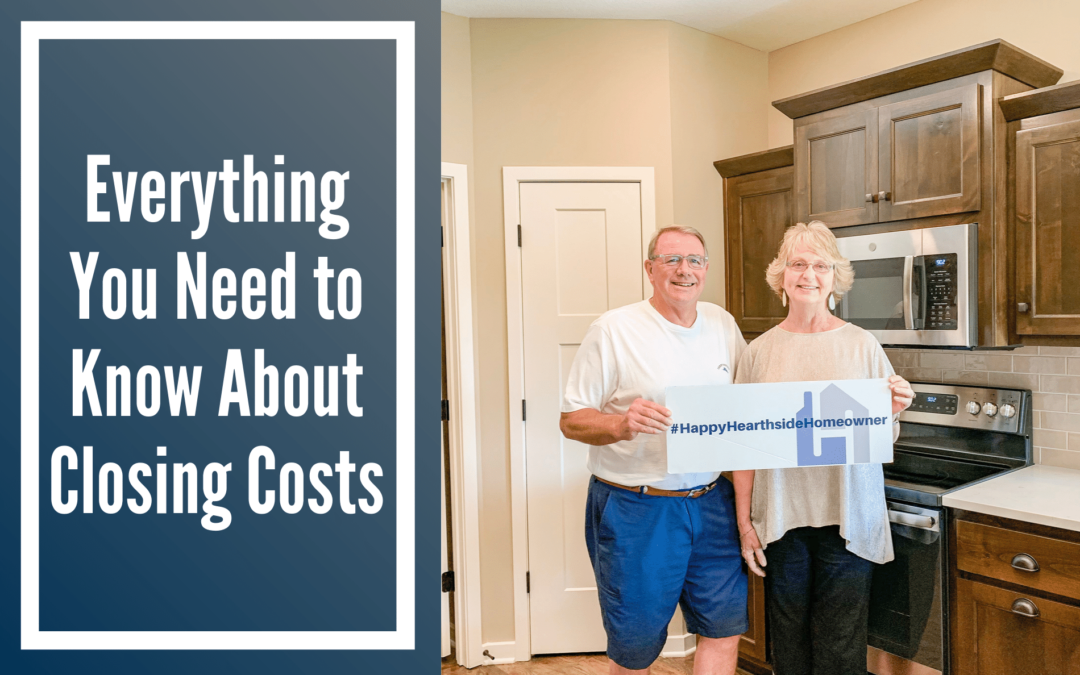Everything You Need to Know About Closing Costs!
There’s no denying the fact that buying a home can be stressful! Particularly if you’re involved in the new construction process, there’s always going to be plenty of details to be mindful of. This can include everything from getting organized for the move to finalizing specific elements of your new home! While a lot of our recent blog posts on here have been related to more aesthetic-related topics, this week we’re going to take at look at home buying from the financial side.
If you’re in the buying market, you’ve likely already been saving for a while to make the down payment on your new home. However, in addition to all of the items mentioned above, you will want to remember that you’ll be responsible for closing costs when you go to sign the final papers. Understanding what closing costs are, how they are split up between the buyer and seller, and knowing what to expect come closing day can help prevent any potential financial obstacles from arising. Having said that, with this post, we’ll walk you through some of the basics of closing costs to ensure you have a seamless closing process!
What Are Closing Costs?
Closing costs can be defined as the fees paid to various third parties to make your mortgage official. This can be for both buying or refinancing a home. The exact closing costs depend on what state you’re buying in, as well as the lender. The seller in the transaction will have their closing costs primarily cover the title transfer and the commission for the real estate agent involved. Meanwhile, the closing costs for the buyer will take care of fees for owning the home and fees to the lender.
How Much Are Closing Costs?
Now that you have an understanding of what closing costs are, the next question typically is how much are these fees? Generally speaking, closing costs are going to run between 3% to 6% of the total purchase price. For example, it you’re looking to purchase a $400,000 home, you should be looking at around $12,000 to $24,000 in closing costs. As mentioned above, the exact percentage depends on the state you’re buying in. In essence, the closing costs in an expensive market like New York are likely going to be higher than those here in the Midwest.
As a side note, if you opt to buy discount points, you’ll pay higher closing costs and in return, receive a lower interest rate on the life of your loan.
What Fees are Included in Closing Costs?
In short, there’s a long list of fees that could be included in your closing costs. While it’s unlikely all of the ones on this list will be a part of your closing costs, there’s definitely the possibility at least a handful will be.
- Application Fee: This fee covers the lender processing your application. It may include a credit check for approval as a buyer and so on.
- Appraisal: The appraisal fee goes to the appraisal company and ensures the home value matches up with the sales price.
- Title and Attorney Fees: This covers all of the fees related to government filings and more that are required to transfer the deed from one party to the other.
- Home Inspection Fee: This is typically completed before closing to determine if any additional repairs will need to be made.
- Escrow Fees: These fees are comprised of a couple months of property taxes and mortgage insurance payments that must be made at the time of closing.
- Flood Insurance: This will determine if your new property is located in a flood zone. If it is, the buyer will be required to purchase flood protection insurance.
- HOA Transfer Fees: If your new community has a homeowner’s association, the seller will need to pay to have these fees switched over to the buyer’s name. It will show the rules and regulations for the HOA, as well as showing that all dues are paid to this point.
- Homeowner’s Insurance: At closing time, typically the buyer will pay for the first year of homeowner’s insurance.
- City and County Property Taxes: This is another one that varies based on location, but a common approach here is to require the buyer to pay for property taxes from the close date to the end of that tax year.
- Origination Fee: Here we have a fee charged by the lender to obtain the mortgage. It is usually calculated as a percentage of the total transaction price and typically runs around 1%.
- Title Search Fee: This one goes to the title company and is exactly what it sounds like. The title company performs an extensive search to ensure no else has claim to the title.
- Other Fees: As mentioned earlier, there’s certainly quite the list of potential items that can be included. Some of these vary by state, while others are dependant on the type of loan (FHA, VA, USDA, etc). A few other potential fees include assumption fees, prepaid interest, discount points, underwriting fees, and VA funding fees. Again, only in rare cases does someone have all of these included in their closing costs, but you definitely will have at least a few of them!
Is It Possible to Lower Closing Costs?
One of the first questions prospective buyers ask is if there’s any way to reduce closing costs. As you might guess, some of these costs are simply non-negotiable, such as property taxes. On the flip side, some of them can actually be lowered. It never hurts to ask your lender if they’re able to provide better rates on anything. At the same time, there are situations where the seller will agree to cover some of the buyer’s costs in an attempt to get the home sold as quickly as possible.
Who Pays What?
On the list above, you may have seen that a few of the items were noted to be covered by the buyer and some more suited towards the seller. As a general rule of thumb, the buyer is usually going to pay a greater portion of the closing costs. Obviously, if the seller is looking to make a quick sale, they might have some wiggle room in the negotiations, but more often than not, it will be the buyer shouldering the bulk of the load. Traditionally speaking, the sellers are going to be responsible for the real estate agent’s commission and title transfer. The majority of the rest (related to owning the home) would be the buyer’s responsibility.
Want to Calculate Your Closing Costs?
As mentioned throughout this article, a major determining factor in your closing costs involves the state you’re purchasing a home in and various other items, such as down payment. If you’re interested in estimating your closing costs, Smart Asset provides an awesome calculator that will do all the math for you!
We’ll Take Care of the Building!
Here at Hearthside Homes, our mission has always been centered around building a quality product that will serve as a place where you’ll make memories for years to come. Going right along with this mission, we strive to create a process that’s easy to follow and stress-free for the buyer. As seen throughout this article, it’s always important to be mindful of all financial items tied to a real estate transaction and one of those is closing costs. We provide free quotes, so feel free to fill out the form here or give our team a call at 816-781-0234 to learn more!
NOTE: At our new office here in Liberty, one of the suites is owned by Groundwork Mortgage. While we have no ties to Groundwork Mortgage as an organization, we can certainly vouch for them as truly being a company that understands the intricacies of the new home process and are capable of delivering as promised. Feel free to get in touch with their team if you have any mortgage-related questions!

